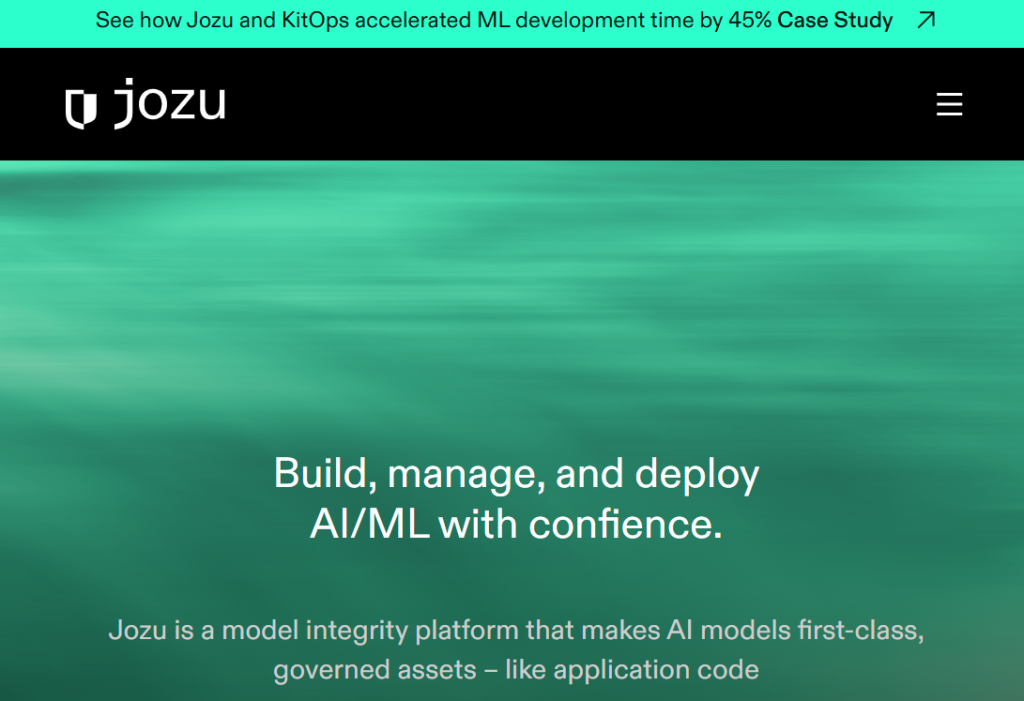Jozu Raises $4M Seed Round to Power DevOps Infrastructure for AI Agents and Models
July 24, 2025
byFenoms Start-Ups

In a major development that underscores the fast-maturing AI infrastructure space, Jozu has secured a $4,000,000 seed funding round to build out its DevOps platform tailored for AI agents, applications, and models. The round included backing from notable investors including HalfCourt, Mozilla Ventures, Brightspark Ventures, AlleyCorp, Sentiero Ventures, and Union Bay Partners.
Led by Brad Micklea, Jozu is tackling a core problem in the AI lifecycle: the operational complexity of managing, auditing, and securing models from development through production. As AI adoption skyrockets across industries, companies are scrambling to find secure, scalable ways to bring models into live environments - and that’s exactly where Jozu comes in.
DevOps for the AI-First Era
While traditional DevOps practices have matured around codebases and cloud deployments, AI systems introduce new variables: continuous learning, evolving data sets, model drift, reproducibility issues, and heightened security concerns. Jozu’s platform provides a seamless infrastructure to curate, track, audit, and deploy AI models, enabling teams to:
- Maintain security-scanned model catalogs
- Track lineage and versioning for regulatory and internal auditing
- Enable collaboration across data science, engineering, and DevSecOps teams
- Automate compliance workflows and policy enforcement
As enterprise AI moves beyond R&D into critical systems like healthcare, finance, and logistics, these capabilities aren't optional - they're essential. Jozu offers a platform-first approach to a problem most companies are still solving with internal hacks, spreadsheets, and unscalable scripts.
According to Fortune Business Insights, the global DevOps market is projected to hit $25.5 billion by 2028, growing at a CAGR of 19.7%. In parallel, IDC estimates AI spending will exceed $500 billion globally by 2027. This intersection - where DevOps meets AI - is becoming one of the most defensible and urgent infrastructure categories in enterprise software.
Why This Round Matters
The $4M seed round is significant for two key reasons:
- Validation of Infrastructure-First Thinking: While most AI startups focus on building novel models, Jozu is focused on operationalizing those models. This signals a shift in where value will be captured in the AI stack - moving from algorithms to orchestration.
- Strategic Investor Alignment: Mozilla Ventures brings open-source ecosystem credibility. Brightspark and HalfCourt bring deep SaaS scaling experience. AlleyCorp and Sentiero have proven track records in backing infrastructure-first startups. This isn’t just capital - it’s networked capital.
Insight Founders Should Not Miss
Here's where smart founders lean in: building for AI-native workflows isn't just about ML engineers. It's about aligning AI deployment with enterprise-grade processes, permissions, and provenance. The fastest-scaling AI startups are the ones who can embed observability, policy, and accountability directly into the model lifecycle.
Many early founders fall into the trap of building just the ML layer - training pipelines, inferencing, prompt orchestration. But ask any enterprise CISO or compliance officer: the problem isn’t model accuracy, it’s auditable reliability. If you can’t trace the origin, intent, and behavior of a model in production, it won’t be adopted. Jozu recognizes this and treats DevOps as a product surface that enhances both model reliability and team velocity.
Smart product builders in this space should prioritize:
- Seamless integrations with existing CI/CD and MLOps stacks
- Human-in-the-loop approval flows for AI updates
- Rich metadata logging that supports security and ethics reviews
- Role-based governance to prevent model misuse or hallucination in critical systems
In short, Jozu is architecting for trust - and that’s where the money flows.
Market Outlook: AI Infrastructure Moves Upstream
As the AI model layer commodifies (with open-source LLMs, agentic frameworks, and vector databases everywhere), value is migrating upstream into tools that orchestrate, monitor, and govern AI operations at scale.
Jozu is tapping into three converging macro trends:
- Model Governance Regulation: New standards (like the EU AI Act and U.S. Executive Orders) are making AI auditability and traceability legally required.
- Enterprise Readiness for AI: Large companies want to scale GenAI pilots into production, but need tooling to do so securely and reproducibly.
- DevSecOps Integration: Security teams are demanding that AI pipelines meet the same bar as traditional software pipelines. Jozu answers this with policy-as-code and security scanning baked into the platform.
According to Gartner, by 2026, 40% of enterprises deploying AI will require model operations platforms as part of their standard toolchain. This is no longer optional tooling - it’s baseline infrastructure.
What’s Next for Jozu?
With the new capital, Jozu is doubling down on:
- Expanding its integrations across CI/CD, GitOps, and cloud-native environments
- Growing enterprise sales and technical partnerships
- Investing in developer experience to make their platform the default choice for secure AI model ops
- Supporting additional modalities beyond text-based models - including vision, voice, and multi-modal agents
Early traction with security-forward industries like finance and healthcare is expected, where risk posture often dictates tool adoption more than raw capability.









